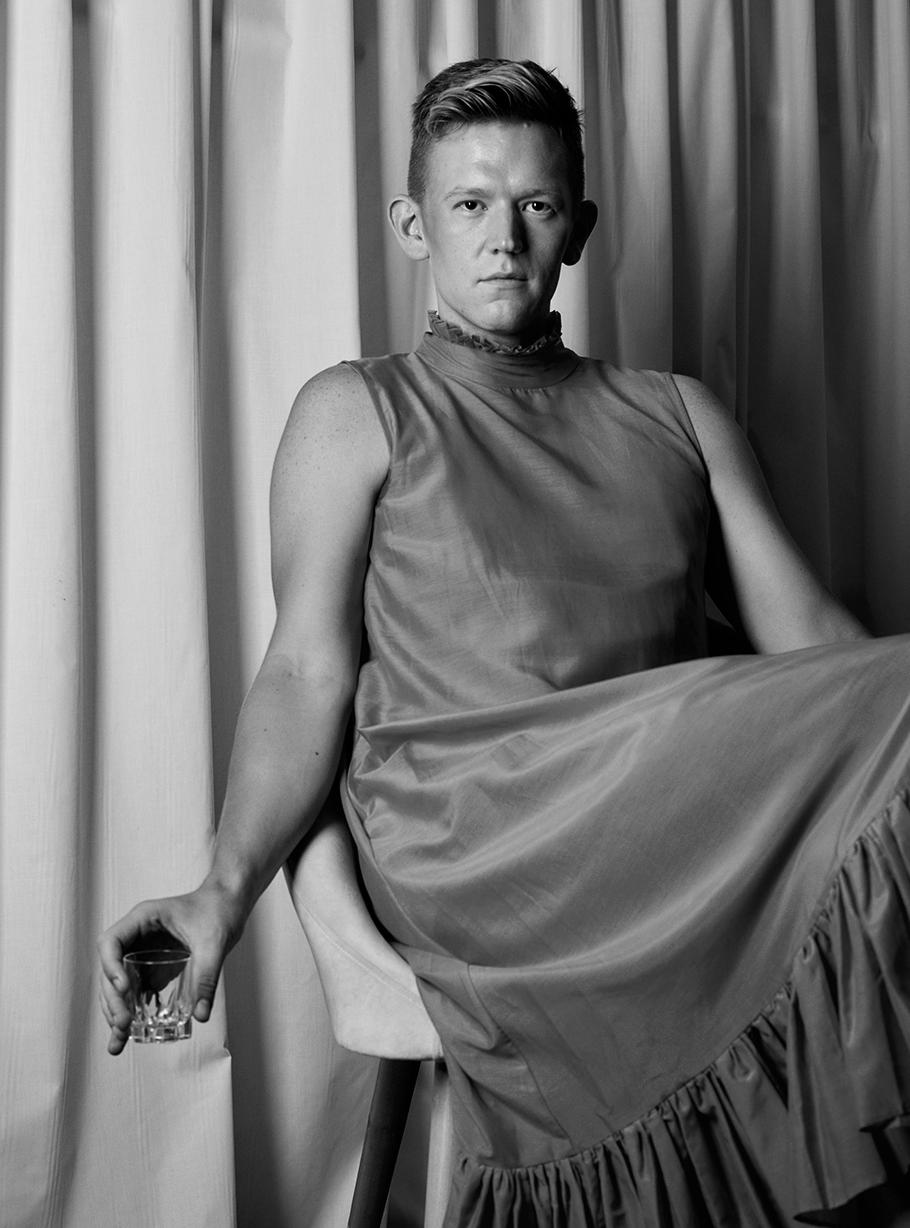
9 minute read
NEWS
from CANTA #5 2021
by UCSA
24-HOURS OF BACKYARD CRICKET FOR MENTAL HEALTH
By Emily Heyward (she/her)
A bunch of freshers at College House are “fizzing at the bung” ahead of their 24-hour cricket marathon fundraiser later this month.
George Glover and his mates will be putting their backyard cricket (BYC) skills to the test in a bid to raise funds for mental health charity ‘I AM HOPE’, in the most “Kiwi-as” way.
“We were yarning, we were just thinking of crazy things that people have done ... just sort of doing something that hasn’t really happened before to our knowledge and then incorporating it with something we are all passionate about, which was fundraising for mental health counselling,” Glover said.
The players, made up of roughly two teams of seven and a sub, would play BYC until they had either run the equivalent of a marathon (about 2,500 runs) or reached the 24-hour mark.
“Whatever comes first; either the 24 hours or the distance, we will play to that,” he said.
But sixes and fours won’t count. The distance had to be made up of physical runs. And the team of backyard cricket enthusiasts were aiming to raise $42,000 for the 42,000 metres they hoped to run.
Glover, who last year raised $64,000 for Mike King’s I AM HOPE Gumboot Fund after swimming the length of the Queen Charlotte Sound twice (123 kilometres over 10 days), said the mental health charity was an important organisation to support.
“Everyone has their mental health battles, of course, and the beauty with I AM HOPE is how their system operates in getting the funding to those youth that need it.”
The charity connects and funds private counselling for youth needing support.
Glover, who was studying towards a Bachelor of Arts and a Bachelor of Science, said he was looking forward to the event getting underway on 28 May at College House.
“I’m buzzing. I’m fizzing at the bung. The boys and girls that we have involved as well are very, very passionate in their work ethic as well. It’s the people that are involved that make it,” he said.
Meanwhile, preparations were underway to ensure the players and supporters stayed fed, hydrated, and entertained throughout the fundraiser. Traeger Grills had sponsored the group to supply the barbeque, and the players were in talks with Redbull about supplying drinks and music throughout the night.
For more information and updates, follow the group’s Instagram @bycmarathon or donate at the Givealittle page (https:// givealittle.co.nz/fundraiser/marathon-innings).
NEWS
UNWANTED DRAMA FOR THE DRAMA SOCIETY
By Emily Heyward (she/her)
Members of DramaSoc are calling on the UCSA to step up its game and create a better environment for student clubs on campus.
From having to fight for performance space in the Ngaio Marsh Theatre to dealing with moldy storage facilities and broken promises, DramaSoc president Shania Lahina said the club had been facing “roadblocks” at every turn.
She said when it came to securing performance space in the Haere-Roa theatre, the club was up against competition from other clubs, external parties and issues with the booking system.
“It feels like [the UCSA] are not prioritising clubs or student wellbeing,” Lahina said.
For this year’s semester one production, DramaSoc were asked by the UCSA in March to consider moving their May show back a week due to an ‘admin error’ which meant the space had been double-booked.
Yet 24 hours after being asked to consider postponing their show, the club was informed the UCSA was no longer able to accommodate moving the show because it had accepted a new booking request made in that time.
Another time, Lahina said the club had the space booked out for a week, but a day before its dress rehearsal, was told by the UCSA the space was needed for another club event.
“All our set was still on stage, so we had to go early, pack it all away ... And in the mess, we lost items from cast, there were things left on stage that were damaged,” she said.
The club president said the UCSA had also promised to help the club find a new storage space for its costumes and stage props which were sitting in a leaky shipping container, but nothing came of it. DramaSoc treasurer Kristen Truman said meanwhile the club was having to purchase new costumes and props to replace what was in the container as there was “mold everywhere”.
“A lot of our budget ends up going to costuming and props and set because if we store anything in the container (which we only have half use of), it will be destroyed by the time the next show rolls around,” she said.
The pair said the constant setbacks and issues had been “frustrating”.
“It always just feels like the UCSA isn’t on our side and there are many times when we have really felt that disconnect where we have been on campus for a really long time, but it doesn’t feel like we’re welcomed on campus or celebrated,” Lahina said.
UCSA president Kim Fowler said clubs were at the “heart of what we do at the UCSA” and was open to working through concerns clubs were having.
“I completely understand that this is a source of frustration for clubs, and really do wish that the space could be more available, but unfortunately there are a lot of conflicts for booking the Ngaio Marsh Theatre, which was designed to be operated as a multi-purpose space, not just a theatre.”
Fowler said external bookings had never taken priority over clubs during term time. However, in the holidays it was “first come, first served” as the UCSA was working to pay off its debt on the building and making money on external bookings helped.
DramaSoc’s production of ‘Love and Information’ will be held on May 14 and 15. Tickets were available online at eventbrite.
INSTITUTIONALISED RACISM WITHIN UCSA SEES MÃORI REP PAID ONE THIRD OF AVERAGE
The Te Akatoki - University of Canterbury Māori Student’s Association - representative on the UCSA student executive was asked to describe what mahi she did in order to justify why she deserved to be paid the same as general exec members.
Te Akatoki tumuaki Rosa Hibbert-Schooner resigned from her position on the student exec last week over major pay disparities, which saw her earn two-thirds less than general executive members despite doing the same amount of work.
Hibbert-Schooner, who earned $1,600 per annum, compared with the $5,200 general exec members were on, said her resignation was about taking a stand against institutionalised racism and highlighting the need for organisations and universities to “step it up” and honour their part in Te Tiriti o Waitangi.
“We were asked to kind of, not prove, but describe what mahi we do in that role to justify the increase of the pay and I kind of thought ‘well yep, that’s great you’re thinking about it but that’s not the process we want so I’m going to resign’ so it makes a bit more of a stand and we get some support in it so people know what’s going on and then secondly can help push for results,” she said.
But UCSA president Kim Fowler said it was about the UCSA making sure it knew that her time was “being used in the right way”.
“That wasn’t ‘we don’t believe you’re doing any work’ that was a ‘we can see you’re doing the work, we want to know exactly where it is, so we know that your time is being used in the right way and also if there’s any gaps there where we should be putting that role into other places or sitting on other boards where it’s actually more important for Te Akatoki tumuaki to sit,” Fowler said.
Hibbert-Schooner said she brought the pay disparity issue up at the beginning of the year but said it hadn’t been properly addressed until recently as the UCSA had been dealing with “a lot of crisis issues”.
When asked whether the UCSA would have done anything to address the inequity if Hibbert-Schooner hadn’t resigned, president Fowler said “absolutely” but thought it probably wouldn’t have happened as quickly.
“Absolutely because we were meeting to chat about it, but it wouldn’t likely have been addressed so quickly. It’s been a hectic term and we haven’t had a CEO so far and so it’s been really tricky to resource it essentially.
“It had been really obvious since the start of the year to the exec that this year Rosa was taking on way more responsibilities in the role and we were always intending to rescope it and increase that.” Fowler said the reason for the difference in pay was because the remuneration had changed years earlier to accommodate the tumuaki at the time having to decrease their hours.
“At one point in time the Te Akatoki tumuaki couldn’t commit to doing more work for the UCSA on top of what they were doing for Te Akatoki and so at that stage the UCSA made the decision to rescope that role to one that was two hours a week, so they only had to worry about being at our exec meetings,” they said.
Fowler acknowledged that the UCSA needed to do better.
“The students association are a colonial institution and so I don’t think anyone has bad intentions, but I think we live in a pretty colonial society, and we are in the position we are, so I think we certainly have issues that we need to work on.”
Hibbert-Schooner said her resignation was much bigger than the pay disparity.
“The main issue here is not just money inequality, but it is the systemic bias we are facing and continuing to face … There is systemic bias within our society and furthermore in organisations. This is not just about the role but about UCSA as treaty partners and what they do for us.”
Hibbert-Schooner said tauira Māori were being under-valued and under-resourced across the board.
“I do think wellbeing support is a huge one for Māori students ... We have huge mental health issues and big disparities in health inequities but are not given the right support.
“We have a Māori counsellor and there is only one of them and they are part-time from what I last checked and that’s just not good enough,” she said.
Hibbert-Schooner wanted her resignation to start a bigger conversation and help create change.
“In 5 years’ time, do we still want to have Te Akatoki in a modest whare that’s breaking down and has a leaky roof or do we want to be utilising and sharing resources and making sure that no matter what association is, if it’s Māori or Pasifika or the Queer Canterbury group, that we’re all uplifted and can share resources because we are giving so much as students to the student body and it should be given more resourcing and just awhina from our UCSA organisation.”
She wanted Pākehā students and student associations across the country to listen and learn about the issues tauira Māori were facing and practise “being a good bicultural partner”.
The UCSA, Te Atatoki and other figures were set to meet to discuss changes to the role going forward.



